Subtraction practice Numbers Worksheets for Ages 5-8
14 filtered results
-
From - To
Welcome to our Subtraction Practice Numbers Worksheets designed specifically for children aged 5-8! These engaging, printable worksheets help young learners develop essential subtraction skills through an array of fun exercises. With colorful illustrations and age-appropriate problems, your child will enjoy practicing basic subtraction in a supportive and enjoyable environment. Each worksheet reinforces number recognition and problem-solving abilities, paving the way for confident and independent math learners. Whether at home or in the classroom, these worksheets are perfect for daily practice or supplementary learning. Help your child master subtraction while having fun—explore our diverse collection today!
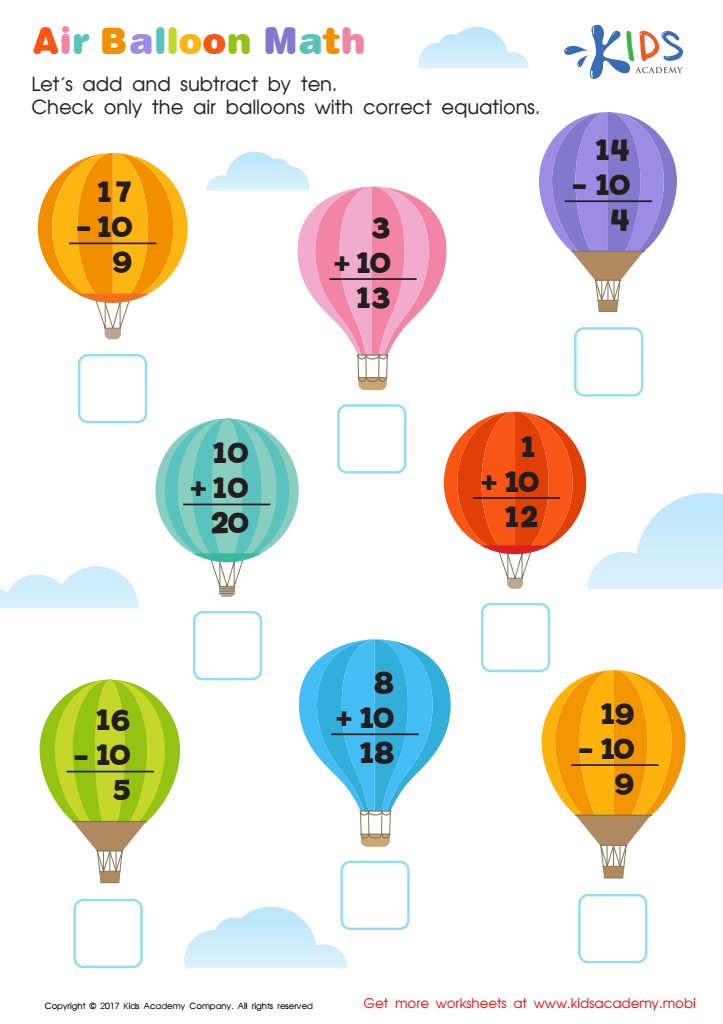

Air Balloon Math Worksheet
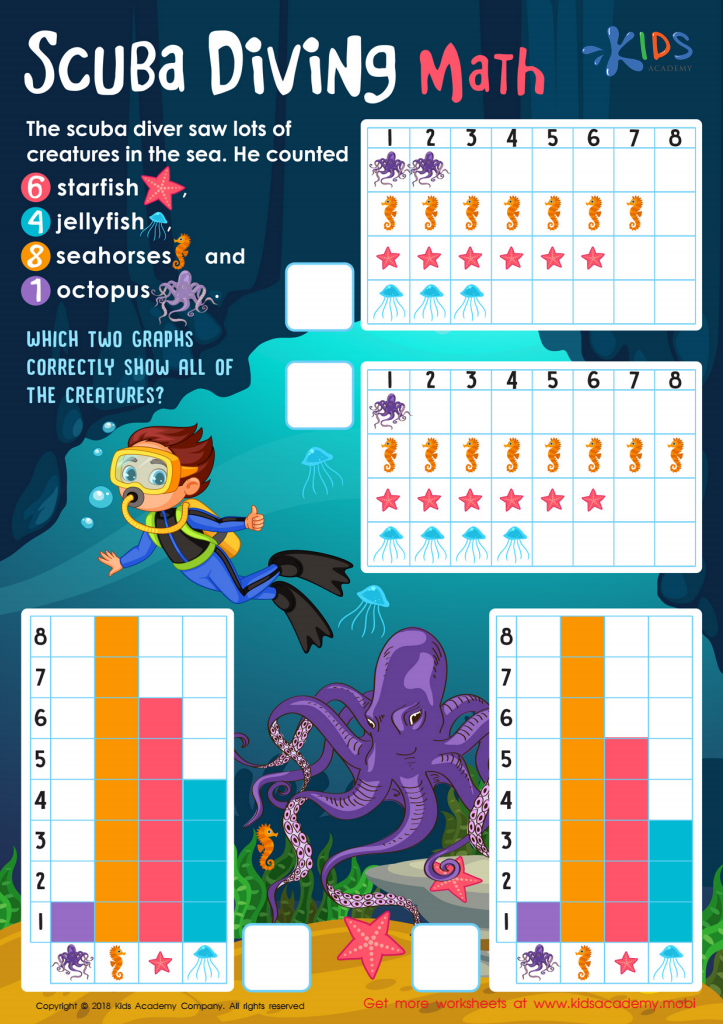

Scuba Diving Math Worksheet
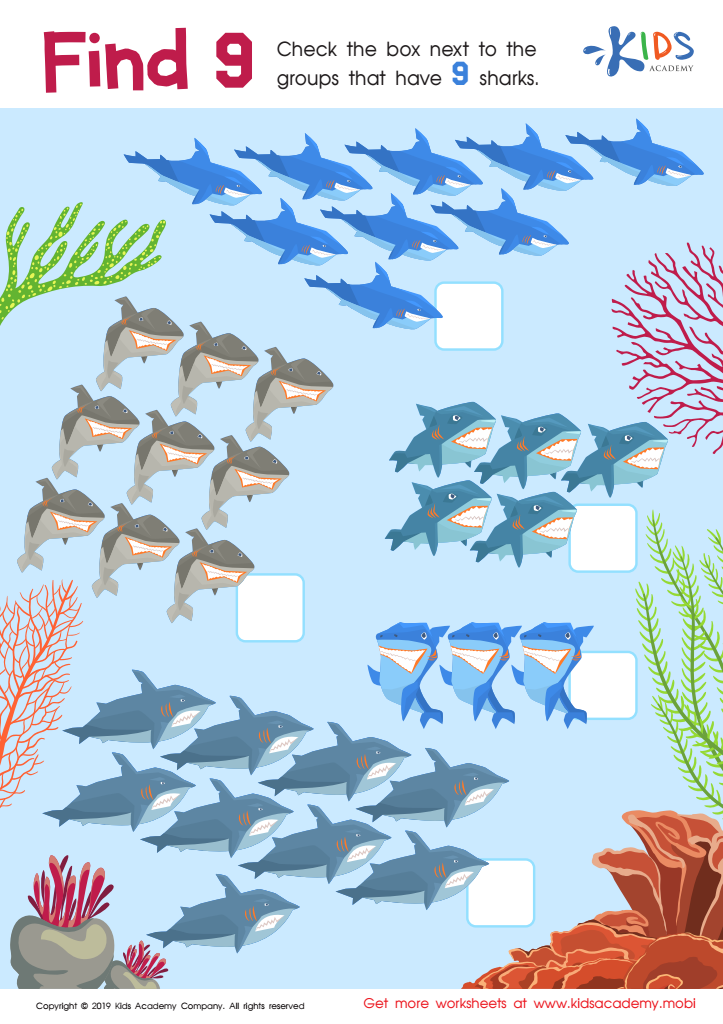

Find 9 Worksheet
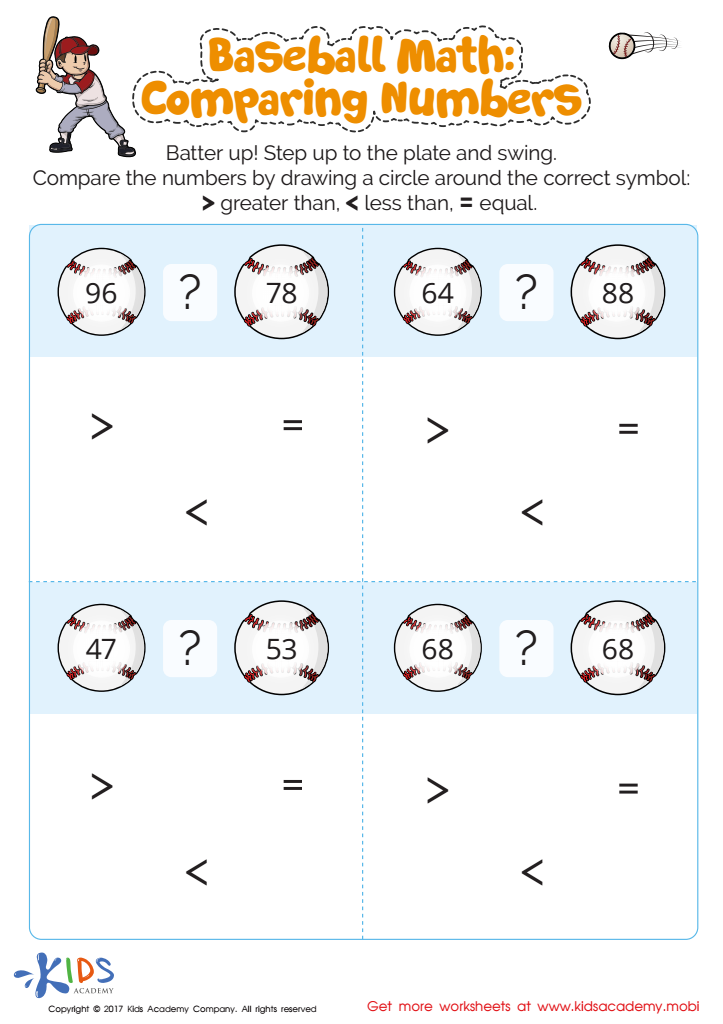

Compare Numbers Printable
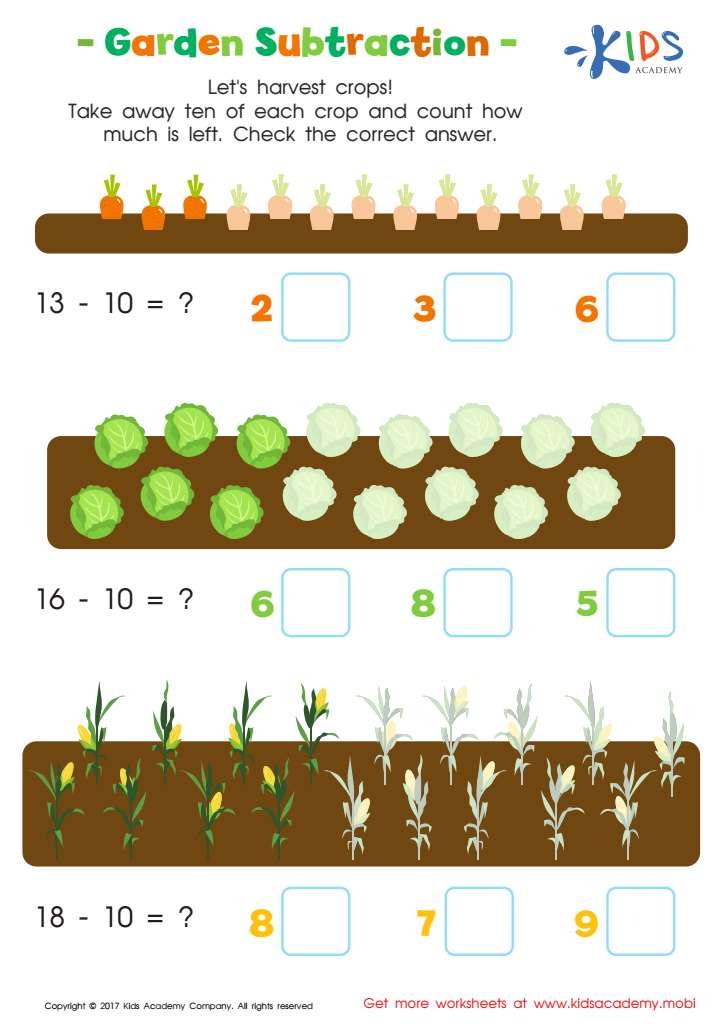

Garden Subtraction Worksheet
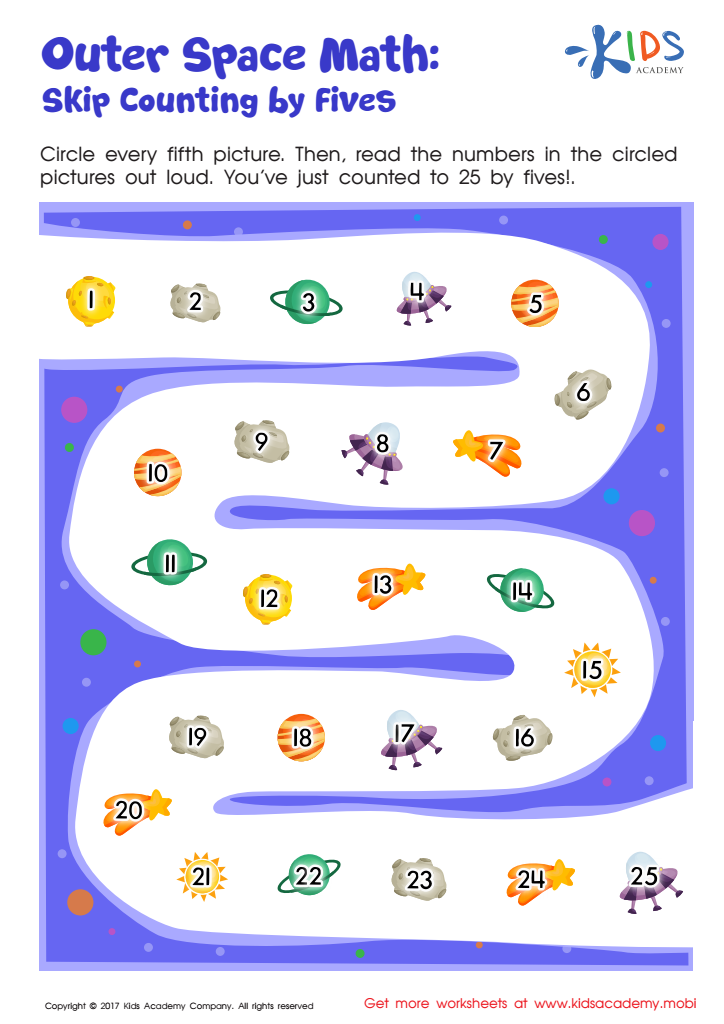

Skip Counting by 5s: Outer Space Math Printable
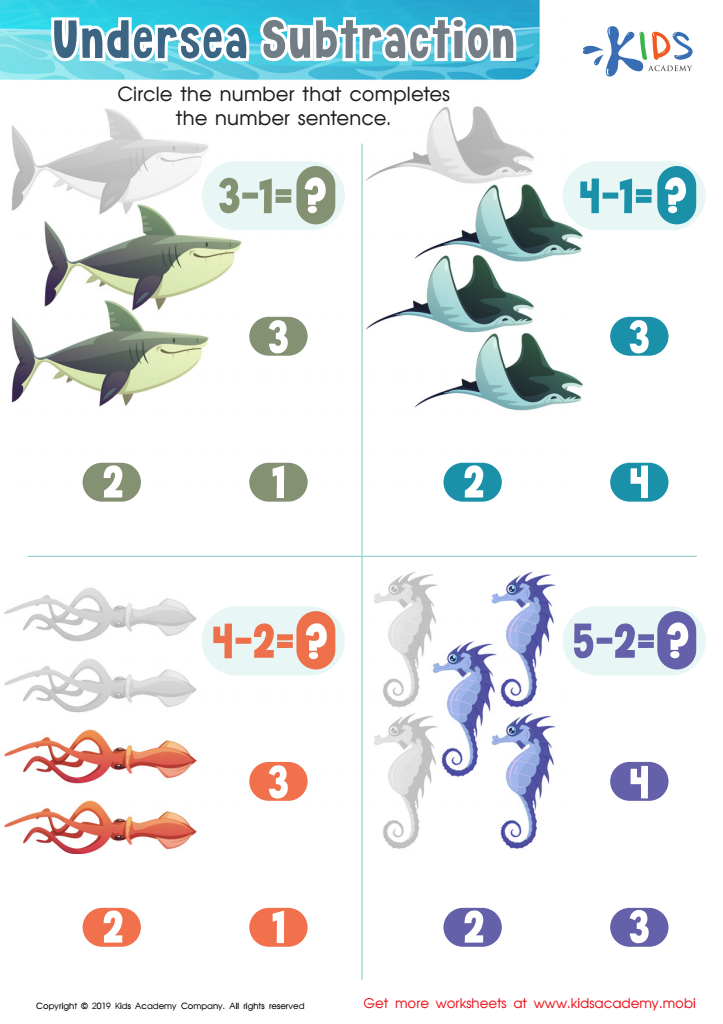

Undersea Subtraction Worksheet
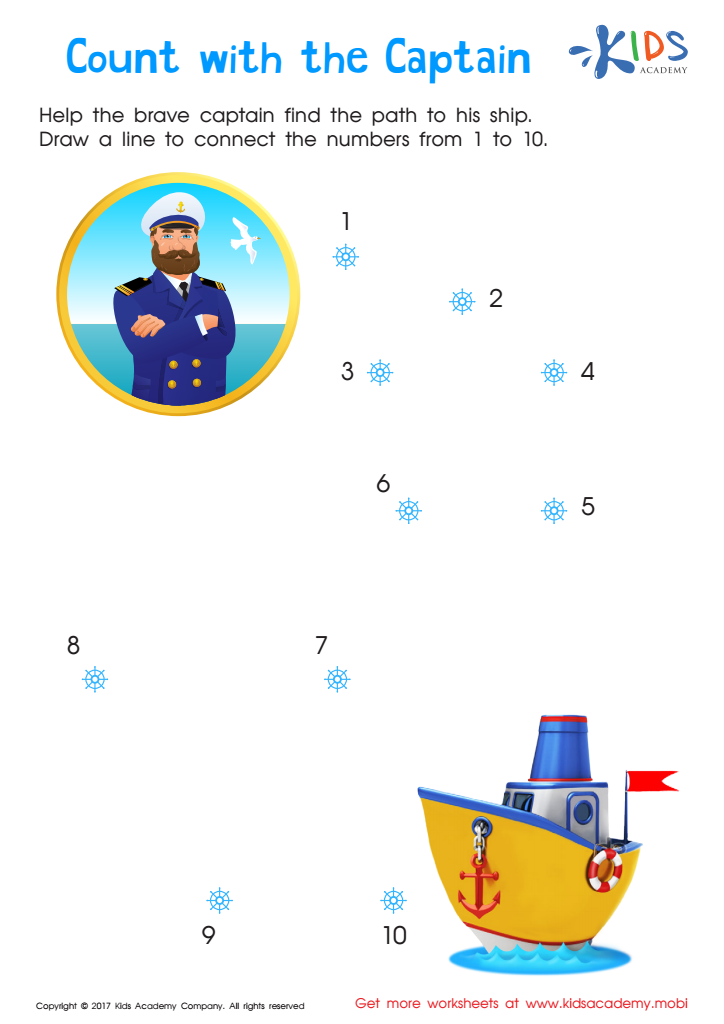

Count with the Captain Connect Dots Worksheet
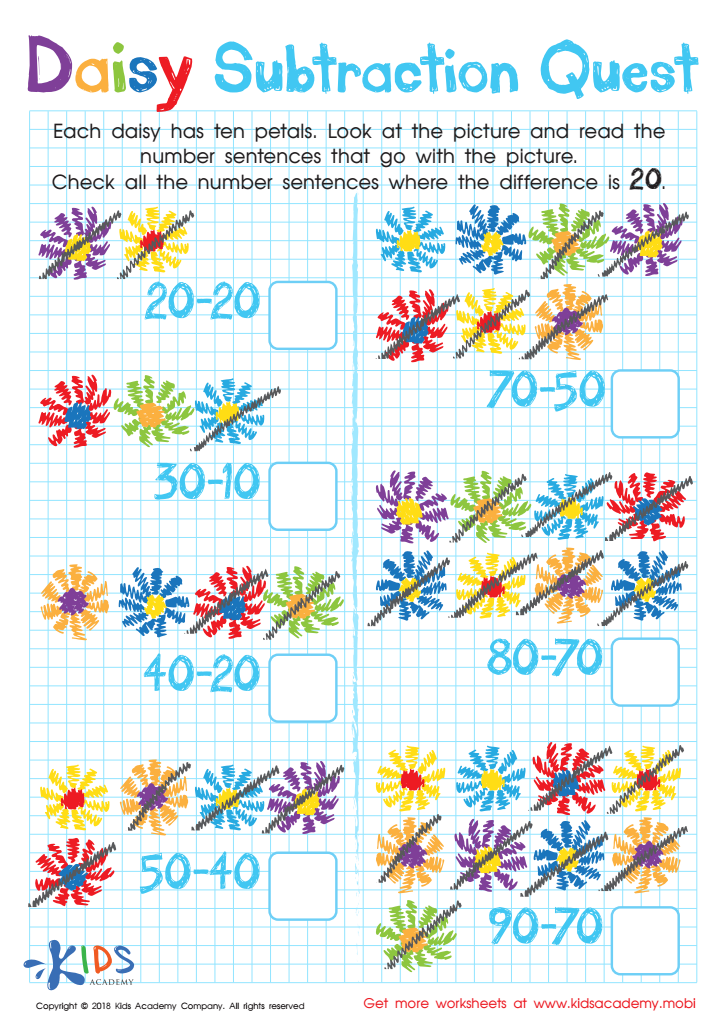

Daisy Subtraction Quest Worksheet
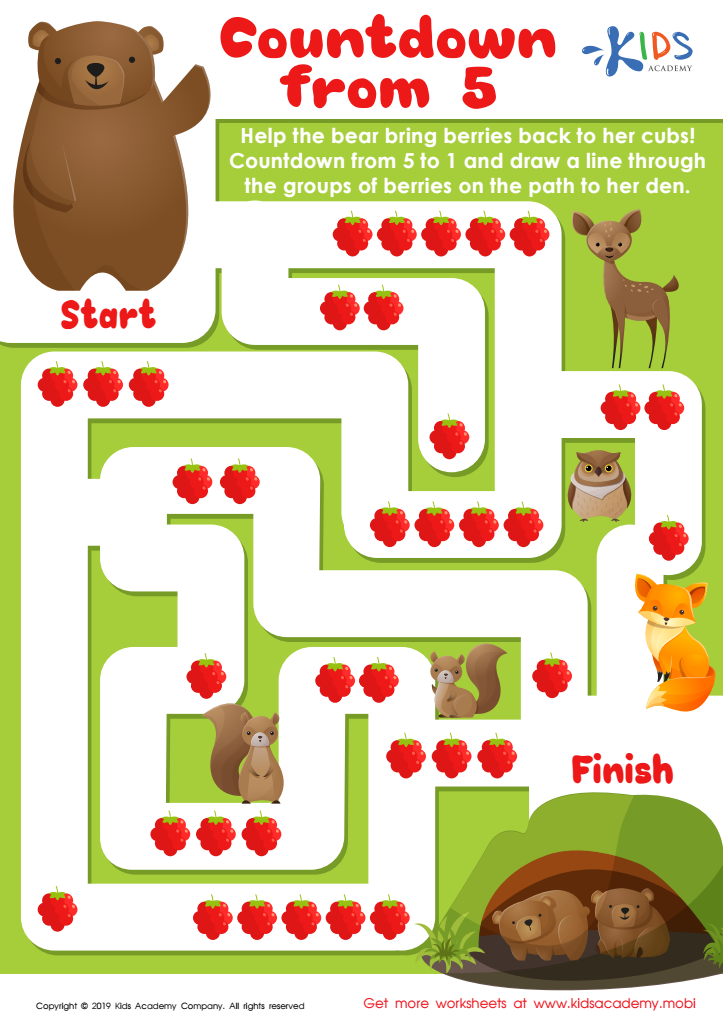

Countdown from 5 Worksheet
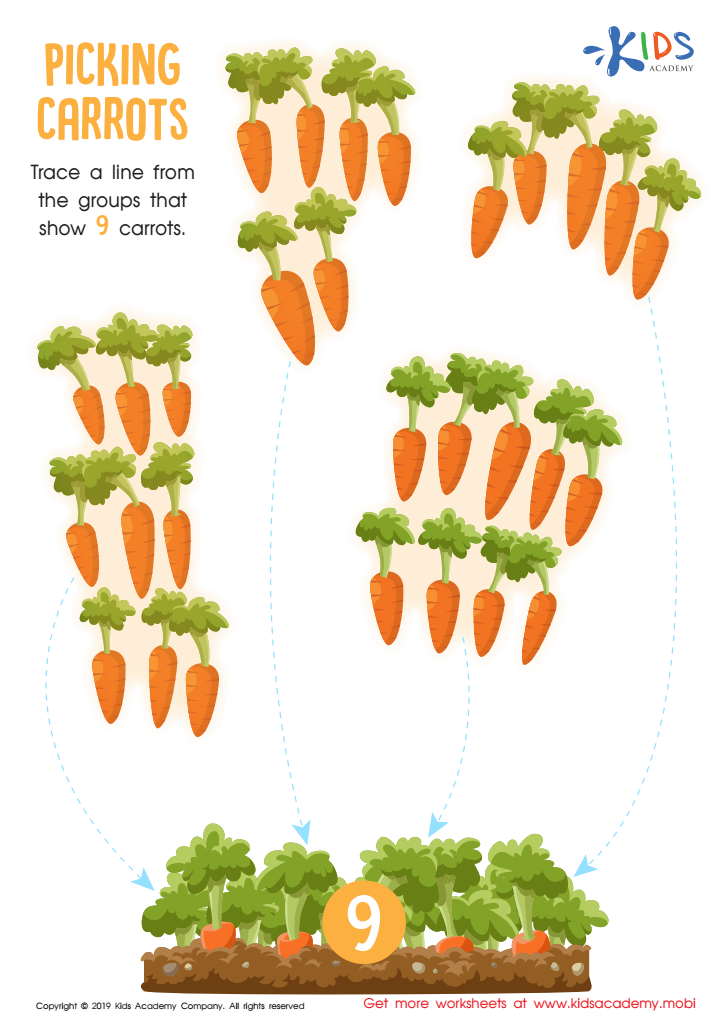

Picking Carrots Worksheet
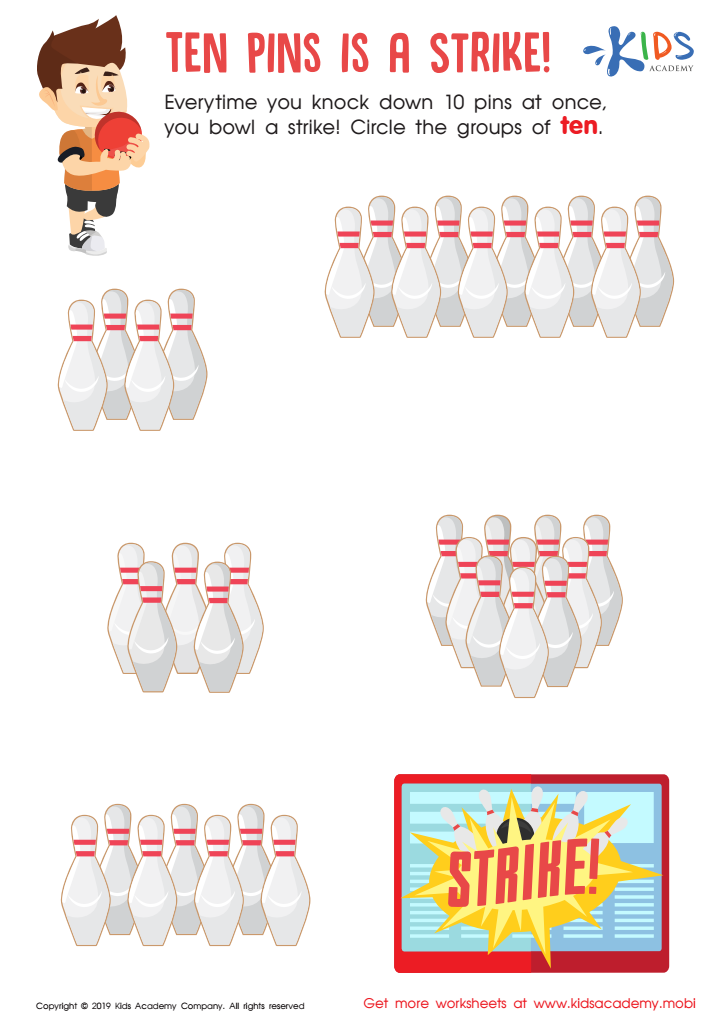

Ten Pins is a Strike Worksheet
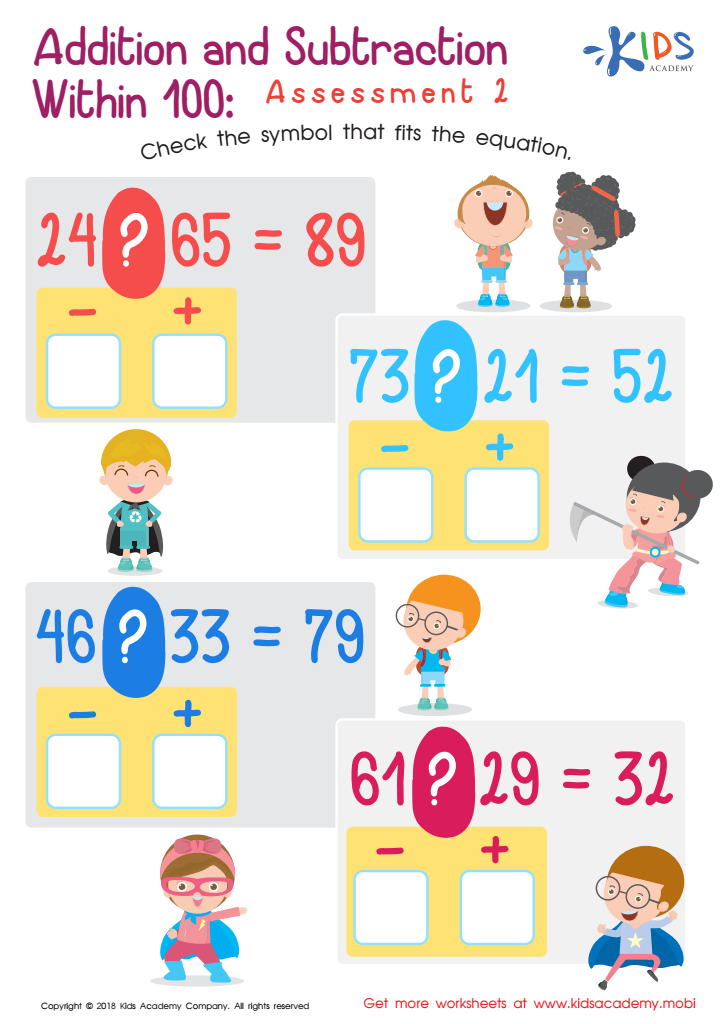

Addition and Subtraction Within 1: Assessment 2 Worksheet
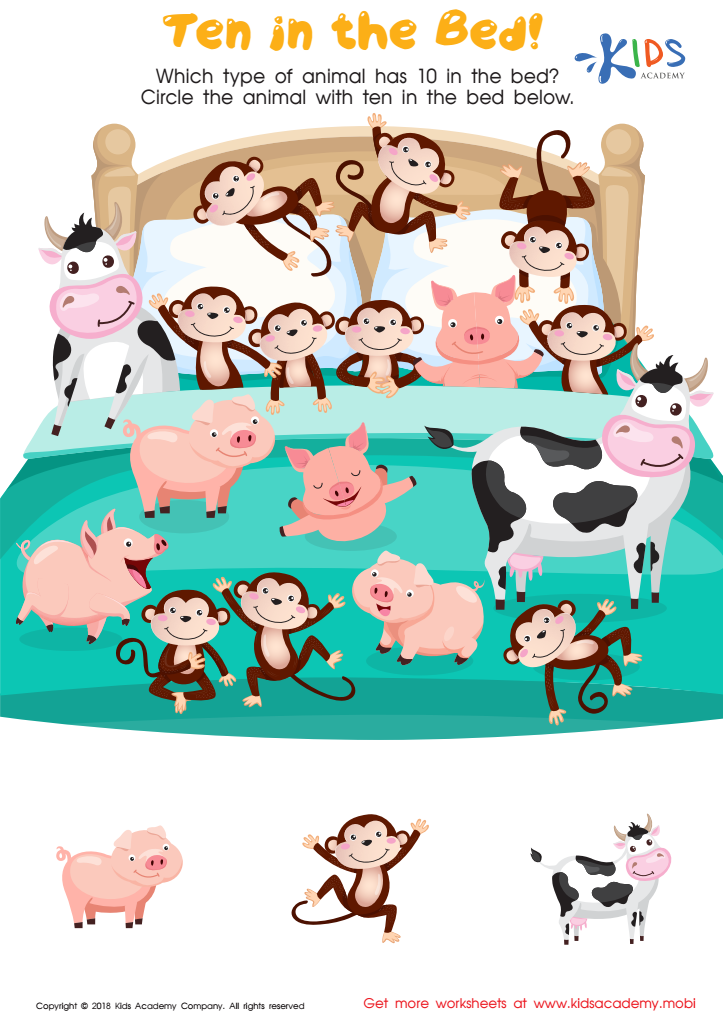

Ten in the Bed Worksheet
Subtraction practice is crucial for children aged 5-8 as it lays the foundation for fundamental math skills. During these formative years, children begin to grasp essential concepts of numbers and operations, and subtraction is a key component of arithmetic proficiency. When parents or teachers prioritize subtraction practice, they not only help students understand how to take away quantities but also foster critical thinking and problem-solving abilities.
Regular subtraction practice enhances number sense, empowering children to make connections between addition and subtraction, and to understand the relationships between numbers. As students develop these skills, they also gain confidence in their mathematical abilities, paving the way for future success in more complex math concepts.
Moreover, proficient subtraction practice aids in everyday application, allowing children to navigate real-world situations, such as giving change or sharing items. For parents and teachers, reinforcing subtraction through engaging activities or games makes learning fun and helps maintain children’s interest in math. By focusing on subtraction skills, adults support not just academic growth, but also the development of perseverance, discipline, and a positive attitude towards math, which serve students well beyond their early education years.

 Assign to My Students
Assign to My Students
















